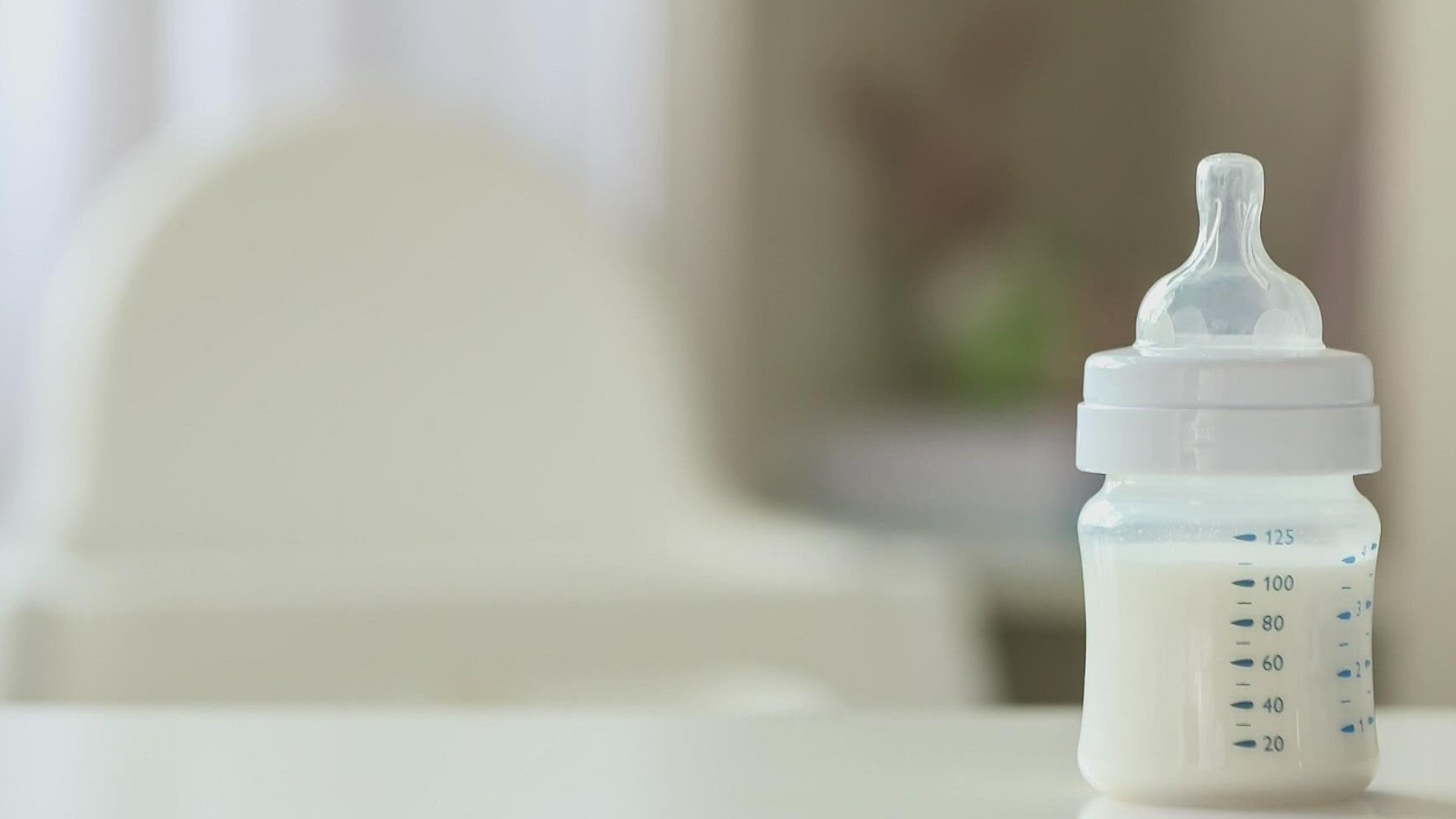ATLANTA — Families across the U.S. are working to find solutions as the nation sees a baby formula shortage. Experts are warning that what may appear to be a fix could actually harm one's child.
"We've gotten calls from moms, from other organizations, health departments," Jamie Lackey said. "Everybody just looking and wanting to know what to do."
Lackey is CEO of the nonprofit Helping Mamas, a community resource known for helping families with diapers, menstruation products and baby items.
Lackey is now seeing the calls for formula come in like never before.
"Through the pandemic and diaper shortages, we've never seen those level of calls before," she told 11Alive's Liza Lucas.
As many parents scramble for solutions amid a nationwide formula shortage, there's been a 200% spike in YouTube searches for homemade formula this month, data shows, and the suggestion that families make their own formula is definitely worrying doctors.
"Overall, I'm really really concerned because making your own formula at home is really dangerous," Dr. Tanya Hofmekler, a gastroenterologist and nutrition chair of the Georgia chapter of the Academy of American Pediatrics.
Concerns about homemade baby formulas include a lack of nutrients, concerns of contamination and imbalances of water and sodium. According to Hofmakler, such electrolyte imbalances can cause a host of issues.
"It can affect the kidneys; it can affect the brain," Hofmakler said. "It can affect the GI tract."
In 2021, the U.S. Food & Drug Administration issued an alert, strongly advising parents and caregivers not to feed infants homemade formula.
"The potential problems with homemade formulas include contamination and absence of or inadequate amounts of critical nutrients," the agency reported. "These problems are very serious, and the consequences range from severe nutritional imbalances to foodborne illnesses, both of which can be life-threatening."
While commercial formulas must meet federal standards, Dr. Hugo Scornik, president of the Georgia chapter of AAP said there is really no safe way to create formula at home.
"The electrolytes have to be right. The fat content," Scornik said. "Everything has to be perfect so it's really just not possible to make it at home."
In addition to warnings about homemade formulas, Scornik and Hofmakler reiterated that parents should not be adding water to commercial formulas in an attempt to extend amounts.
"No one should be watering down their formula to make it last longer," Scornik said. "Unfortunately, it can mess up the electrolyte imbalance, and it can cause seizures in a newborn baby."
Both Scornik and Hofmakler said they do understand parents' desperation, especially those looking for specialized formulas.
"Your first phone call should be to your pediatrician, and they'll guide you on what to do," Scornik said, adding doctors can often help with samples, particularly for families who need specialized formulas.
Parents with older babies unable to locate any commercial formula may also be able to discuss other temporary options with their child’s doctor.

